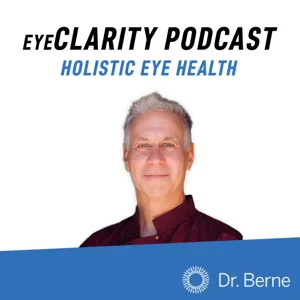Here is a fireside chat I had recently with a private group of interested consumers in vision improvement. We cover all the hot topics in holistic eye care including Glaucoma, eye exercises, dry eye, floaters, and more. Enjoy the Show.
If you want more, sign up for my newsletter at: www.drsamberne.com. If you have any questions, submit them to
[email protected] or you can now text me! Text ‘Join’ to 1-844-932-1291 to join the community and ask your questions!
SUMMARY KEYWORDS
eye, myopia, glaucoma, astigmatism, lens, nearsighted, cataracts, farsightedness, part, work, retina, floaters, macula, vision, eyedrops, give, reduce, prescription, body, related
Hello, everyone, it’s Dr. Sam, I’d like to welcome you to my EyeClarity podcast. This is a show that offers cutting edge information on how to improve your vision and overall wellness through holistic methods. I so appreciate you spending part of your day with me. If you have questions, you can send them to
[email protected]. Now to the latest EyeClarity episode.
I am a optometrist and might be called a behavioral optometrist, holistic optometrist. And I've been in practice for over 30 years, and have developed a lot of modalities to help people improve their eyesight and vision. I am a firm believer in the Bates method. And you still utilize a lot of the things I learned from Dr. Bates and also from the vision educators. So today, I want to give you my perspective, and I want to do a disclaimer and say that this is all educational information. So it's not a substitute for your doctor. And also, this is my opinion. So it's, you know, it's, it's what I have developed and experienced. But check it out for yourself before you embark on anything. So, you know, when you go for the eye exam, which we all have done, it's a very mechanical and usually pretty quick experience. And I'm going to be focusing on people who are nearsighted or farsighted, or have a astigmatism at least to start off with, we can get into some of the eye conditions also.
But when you go for that perfunctory exam and you get a lens for nearsightedness, we'll start there. Basically, the prescription that you're getting is a computer readout of your score of history. In other words, the adaptations that you have made in your life, to adapt your vision into nearsightedness. And, you know, on a classical definition, nearsightedness is about pulling the world in, it's about tightening up, it's about, you know, walking down at a close distance, and you give up your distance, clarity. And so the doctor gives you a minus lens, minus lens negative lens, you might take on more negativity, it's also a lens that tends to tighten you up and compress you.
And yet, you get that instant gratification that I can see clearly, at 20 feet. But you give up a lot in that transaction, because now you are going down a road of perpetual reinforcement. And for any of you on the, on the call today, if you're nearsighted. Usually that's not the first prescription or the last prescription, but you ended up going back subsequently, year after year to get a stronger lens, because it's a symptom based model. And so you keep getting this nearsighted prescription and then, you know, eventually you get sucked into having to use them all the time. And so one of the things that I talk about in myopia, and this comes from working with 1000s of patients, you know, I have, I've done my own clinical research. And so this is what patients have told me about myopia. And this is based more on a behavioral, like, how does it affect you behaviorally, emotionally, energetically? How does it affect your decisions? So what patients have told me about myopia is that first of all,





 View all episodes
View all episodes


 By Dr. Sam Berne - Holistic Eye Health
By Dr. Sam Berne - Holistic Eye Health



















